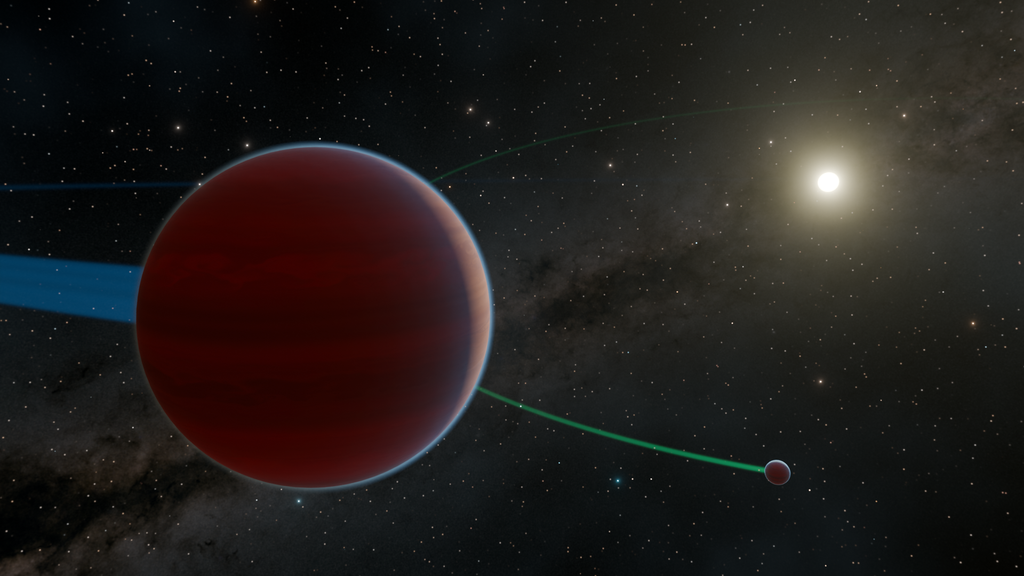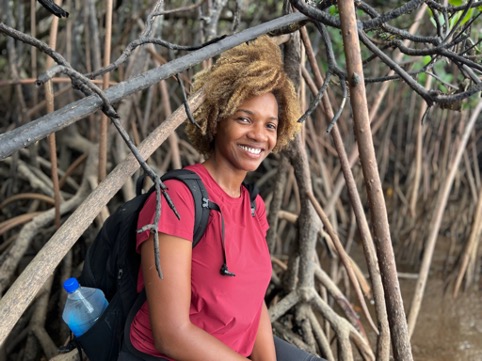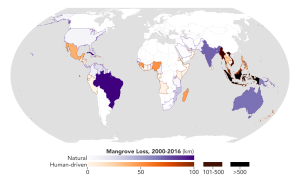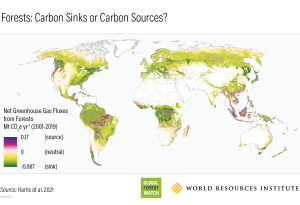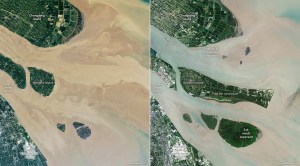Dr. Lola Fatoyinbo, a research scientist at NASA’s Goddard Space Flight Center in Greenbelt, Maryland, received the Esmond B. Martin Royal Geographical Society (RGS) Prize on April 8 in London. The prize, according to the RGS, recognizes “outstanding achievement by an individual in the pursuit and/or application of geographical research, with a particular emphasis on wildlife conservation and environmental research studies.”
The late and renowned conservationist Esmond Bradley Martin founded the annual prize via a bequest; Fatoyinbo is the second recipient. The Esmond B. Martin Royal Geographical Society Prize recognizes outstanding achievement by individuals undertaking research into wildlife conservation and environmental studies, reflecting Esmond’s tireless work for the protection of wildlife and our natural environment. Fatoyinbo is part of the Biospheric Sciences Lab at NASA Goddard, where she develops and uses advanced remote sensing technologies and data to understand forested and coastal ecosystems. The lab also studies mathematical modeling and advanced analytical techniques that allows scientists to characterize and predict environmental changes due to natural and anthropogenic processes at local to global scales.
“I am deeply honored and grateful to receive this award,” Fatoyinbo said. “Being the recipient right after Dr. Paula Kahumbu, whose work and mission I admire, and in the name of Esmond Bradley Martin, is inspiring and humbling. This recognition also profoundly motivates me to continue producing the environmental data and knowledge that I believe will help protect life on our planet.”
Fatoyinbo has authored or co-authored 60 publications in scientific journals, and she has also partnered with organizations to help protect ecosystems and provide pathways for her research to inform policy decisions.
“In her work, Lola manages to accomplish something of an engineering-theoretical, ecology applications trifecta,” said Woody Turner, NASA’s program manager for ecological conservation, NASA Headquarters in Washington. “By using complex active remote sensing from radars and lidars, she tests cutting edge theories of how tropical and subtropical coastal systems function. But she does all that without losing sight of the practical applications of her team’s work for real people making real decisions in dynamic environments. That kind of synthesis is very difficult to achieve and arises only from an extremely curious individual. Lola brings it all together.”
Her work on airborne light detection and ranging, or lidar, and satellite imagery campaigns after Hurricane Irma in the Caribbean, the impact of oil exploration in the Niger Delta, and studies of mangrove forests across the Americas, Africa, and Asia, have increased global understanding of some of Earth’s most critical systems and supported the voices of those that depend on them.
Fatoyinbo said she is also dedicated to training and mentoring the next generation of scientists looking to understand and help protect our home planet, starting with the junior researchers in her lab.
“Lola’s work exemplifies how geographical research has a real-world impact,” said Nigel Clifford, RGS president and chair of the awarding panel. “Her commitment to ensuring that scientific study influences policy shows true leadership in conservation and environmental research and makes her the perfect recipient for the Esmond B. Martin Royal Geographical Society Prize.”
The Royal Geographical Society (with the Institute of British Geographers) is the learned society and professional body for geography. Formed in 1830, their Royal Charter of 1859 is for the advancement of geographical science.
By Jake Richmond
NASA’s Goddard Space Flight Center, Greenbelt, MD














